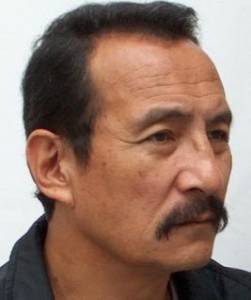






***
Jamyang Norbu


[1] Kipling expanded and incorporated this account in his novel Kim, published in 1901.
[2] Herbert Spencer, 1820-1903. Once immensely influential and internationally popular Victorian thinker, formulator of the 'Synthetic Philosophy' that sought to apply scientific, especially evolutionary theory not only to biology but to psychology, sociology, anthropology, education and politics.
[3] By a happy coincidence Watson ends his account of Holmes's death at Reichenbach (The Final Problem), with a similar sentence. Probably Watson and Mookerjee were both unconsciously recalling the lines of another, more ancient, biographer on the death of his celebrated friend and mentor. Plato in the Phaedo wrote: 'Such was the end, Echecrates, of my friend, concerning whom I can truly say that of all the men whom I have ever known, he was the wisest and justest and the best.'
[4] Milton, Paradise Lost.
[5] Kipling's indiscretions regarding the Indian Secret Service do not seem to have been confined to just the affair concerning 'The Pedigree of the White Stallion. Kipling readers will know that Strickland and his undercover activities are mentioned not only in Kim but in a number of short stories as well. Strickland is depicted as a proficient investigator, though certainly less cerebral than Holmes. He is a master of disguise and possesses a wide knowledge of native Indian customs and folklore, especially the more arcane and shady kind.
[6] For a fuller account of Strickland's problem, see Kipling's short story 'Miss Yougal's Sais ' in Plain Tales from the Hills.
[7] Probably the Reuter's despatch that appeared in all English papers on 7 May 1881, mentioned by Dr Watson in The Empty House.
[8] A near identical thumb-nail biography of Prof. Moriarty is provided by Holmes to Dr Watson in The Final Problem and The Valley of Fear.
[9] One of Dr Watson's less celebrated gaffes as a reporter is cleared up here. In The Empty House Watson records Holmes as crediting his defeat of Moriarty to his knowledge of… 'baritsu or the Japanese system of wrestling…' In point of fact the word baritsu does not exist in the Japanese language. The actual term used by Holmes and cor-recdy reported by Hurree is bujitsu, the generic Japanese word for the martial arts, which includes the Japanese system of wrestling {jujitsu) in addition to fencing, archery, etc. The Japanese statesman-scholar, Count Makino, also offered a similar explanation to account for Watson's error, in a paper read at the founding meeting of the Baritsu chapter of the Baker Street Irregulars in Tokyo, on 12 October 1948. (See Foreign Devil: Thirty Years of Reporting in the Far East, Richard Hughes, Andre Deutsch, Great Britain, 1972.)
[10] Very similar to a sacrifice throw in Judo called Tomoe-nage.
[11] This was his brother Mycroft, as Sherlock Holmes was to later inform Dr Watson when he returned to London (see The Empty House). Holmes had also previously confided to Watson, though in a somewhat roundabout way, that Mycroft was actually the chief of British Intelligence. In The Greek Interpreter Holmes remarks that Mycroft occupied 'some small office under the British Government' though he was in truth 'the most indispensable man in the country.' In The Bruce Partington Plans Sherlock Holmes further confides to Watson that Mycroft's unique governmental position was that of a 'central exchange for incoming data' and that 'Again and again his word has decided the national policy.'
[12] Holmes expresses a similar thought at the conclusion of The Adventure of the Cardboard Box.

